Scholar Spotlight - Fola Olaleye
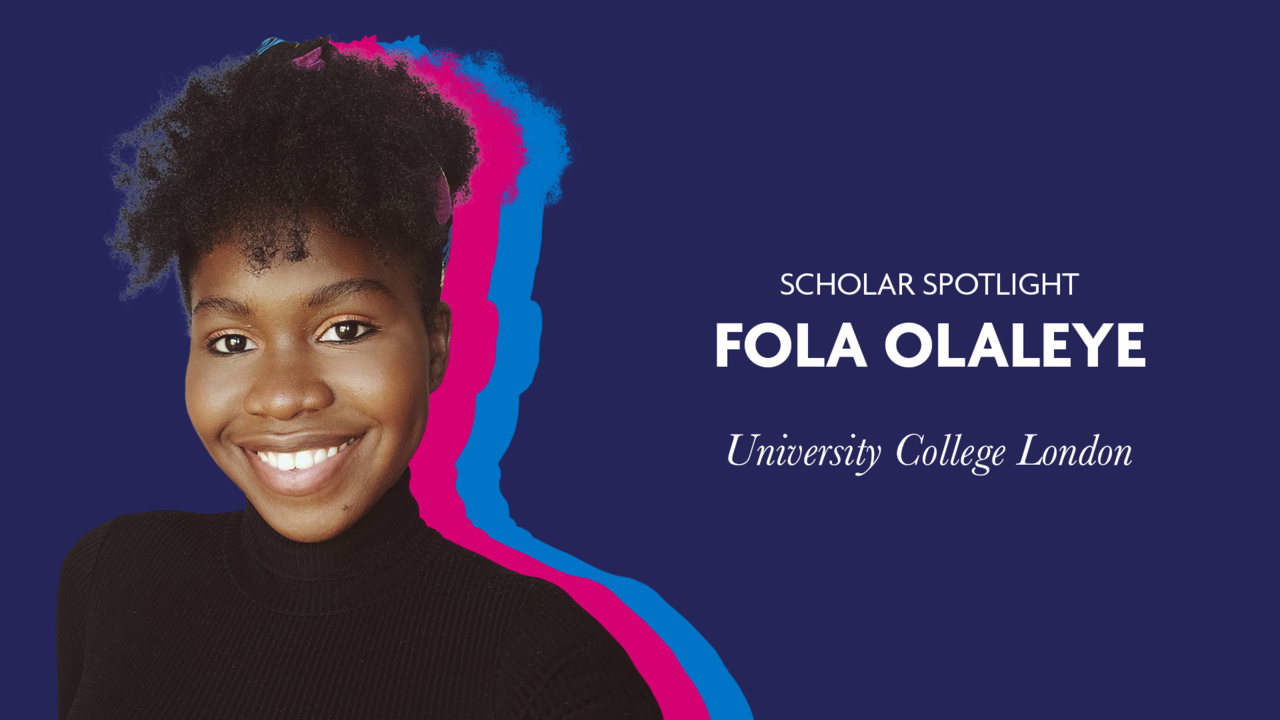
Fola Olaleye, a Laidlaw Scholar at University College London, on her research "Making one’s voice heard in the right to housing: grassroots campaigns and planning processes in London", and overcoming imposter syndrome.

The housing crisis in London is threatening many people’s ‘right to the city’, and grassroots campaigns for the right to housing are demanding the provision of decent and affordable housing for all. My research explores how traditionally disengaged groups are able to collectively organise to influence housing and planning processes in their local areas.
Cities have become political spaces in which people make claims for justice and their rights. This idea can be linked to the ‘right to the city’ concept, first introduced by Henri Lefebvre in 1968. For some, the right to the city means reclaiming the city as a place for people, not for profit. This involves working to achieve greater democratic power over planning processes to ensure everyone can enjoy the benefits of urban life, and campaigning for greater access to urban resources, in particular housing.
There’s a lot of literature on urban social movements and the prerequisites for building successful grassroots campaigns, but there is much less work on the lived experiences of campaigners and the challenges they face - especially in relation to how they unravel the complexities of housing and planning policies and processes, how they build capacity, and how they maintain the drive to keep fighting even in the face of adversity. My research provides insight into these areas using the Focus E15 campaign – one of London’s most vocal campaigns against housing injustices and social cleansing – as a case study.
I hope that my research encourages people (especially built environment students) to learn more about grassroots campaigns for the right to housing, and to support and amplify the voices of those who are often neglected by systems that should be working to serve them. Additionally, my research highlights the important contribution of grassroots campaigners to the education and empowerment of vulnerable groups.
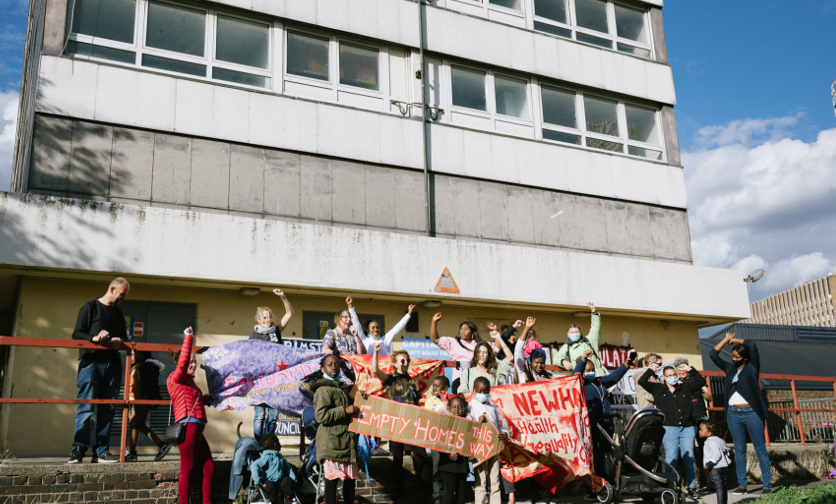
Focus E15 campaigners and Brimstone House residents outside the empty Carpenters Estate (currently earmarked for demolition and redevelopment), calling for the estate to be repopulated.
Where did your passion for this research originate?
While conducting research for the National Housing Design Audit in my first year of the Laidlaw programme, I became increasingly aware of the need for good quality, secure and affordable housing for everyone, and this sparked my interest in housing policy and housing rights. In the second year of my degree, I took the ‘Cities and Social Change’ module, which gave me insight into the challenges of public participation in housing and planning processes. We discussed how formal means of participation (e.g. consultation meetings) can be inaccessible to certain social groups, including low-income groups, ethnic minorities, and young people.
Participation in planning processes is often dominated by older white people from a middle-class background, many of whom are already aware of how the planning system works and how to engage with it. However, I was interested in people who are often excluded from these decision-making processes and have to make their voices heard through informal means of participation (e.g. grassroots campaigns), as they fight against unjust issues such as demolitions for regeneration projects, gentrification and displacement.
I decided to combine my interests in housing and public participation for my second year Laidlaw research project, and my curiosity about how people come to learn about the processes and policies that have the potential to disrupt or improve their everyday lives led me to consider the significance of grassroots mobilisation in achieving meaningful public participation and engagement in wider planning processes.
What is the most memorable moment from your Laidlaw scholarship experience so far?
The most memorable moment from my Laidlaw scholarship experience was finding out that the National Housing Design Audit was shortlisted for the Royal Town Planning Institute’s Sir Peter Hall Award for Research Excellence. Having the opportunity to be involved in such an important piece of research through the Laidlaw Scholarship is something I am immensely grateful for.
What is the biggest challenge you came across in your research and leadership journeys so far, and what did you learn from it?
The biggest challenge I’ve come across during my research and leadership journey has been dealing with imposter syndrome. Throughout my Laidlaw experience, I found myself doubting my abilities and comparing myself to people who were doing completely different things. I felt my work wasn’t ambitious or valuable, and this really affected my attitude towards my research project.
However, after endless conversations with my sisters and friends, I started changing my outlook on life in general – I put things into perspective and prioritised my wellbeing. Whenever I feel myself slipping into self-doubt, I remind myself of all my achievements, both big and small, to date. My sister inspired me to create a ‘Feel Good Folder’ – a place to keep records of all my accomplishments – and it really helped with navigating those periods of self-doubt.
I also try to remind myself that life isn’t about being ‘the best’. There will always be someone who is better than you. We should focus on being the best versions of ourselves, honing our skills, working on our personal growth, and striving for success, but never at the expense of our happiness or wellbeing.
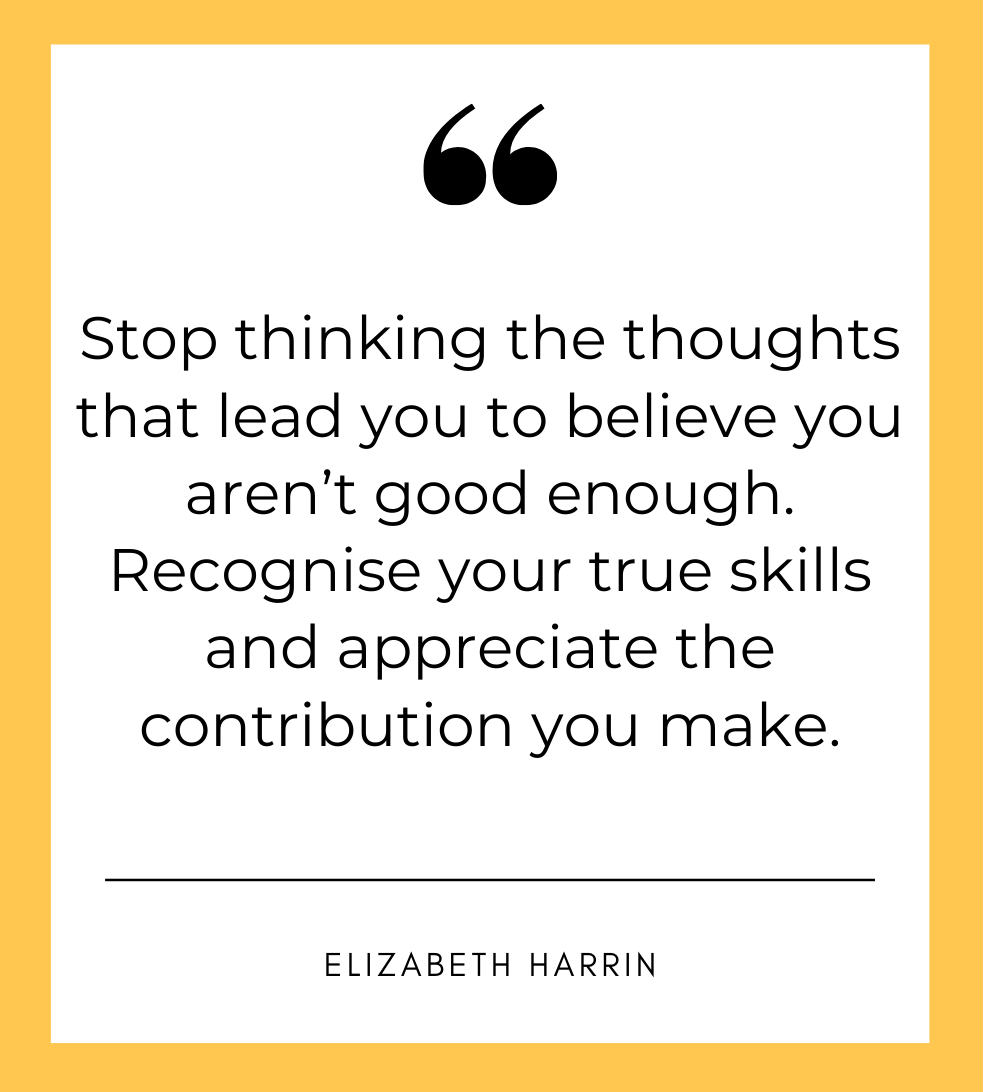
What does it mean for you to be a Laidlaw Scholar?
To me, being a Laidlaw Scholar is about having the drive and opportunity to create impact in the world, no matter how big or small. As a Laidlaw Scholar, you are part of a brilliant network of like-minded individuals who are ambitious and driven by the desire to achieve social equity. My experience as a Laidlaw Scholar has been extremely rewarding because of the incredible people I’ve met and worked with, and the opportunities the Laidlaw Foundation has offered us.
Which particular leaders inspire you the most and why?
One key thing I learned from my Laidlaw experience is that anyone can be a leader, even if they don’t view or describe themselves as one. I am inspired by the many resilient and compassionate individuals who are fighting against social injustice in all its forms, despite the challenges they face. Additionally, I have been inspired by other Laidlaw Scholars around the world who have applied their leadership skills to create amazing initiatives to help others, and those who have used their research to spark important debates in various fields, shedding light on marginalised voices and histories. Moreover, I am inspired by people who are working to increase the visibility of Black, Asian and Minority Ethnic individuals in the built environment profession. Priya Shah, founder of BAME in Property, is a great example for the fantastic work she has been doing in this area. These people remind me that I am more than capable of creating meaningful change in the world, no matter the scale of my impact.
Describe a scene from the future you are striving to create:
Imagine a world where everyone, no matter their history or story, has access to their basic needs and opportunities for self-actualisation.
As an aspiring built environment practitioner, I hope to create this vision by conducting interdisciplinary research and advocating equitable sustainable development that places people at the heart of decision-making.
Quick-fire Questions
📺 Currently binging: Journey of an African Colony (a really interesting docu-series about Nigeria’s road to independence – highly recommend!)
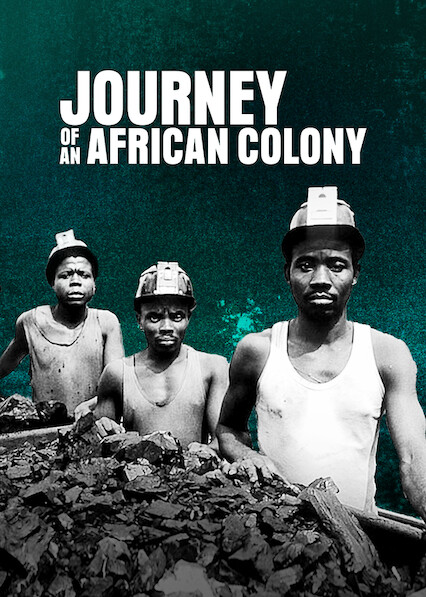
🎵 My quarantine anthem: OUTTA MY MIND - Monsune
📚 My top book recommendation: Happy City - Charles Montgomery
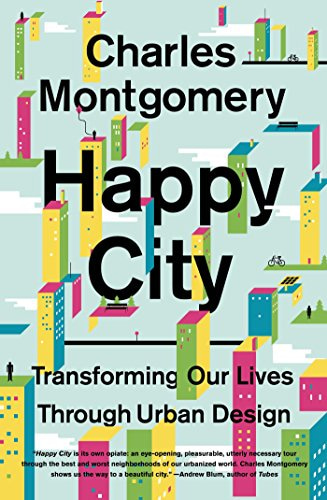
🎧 Podcast obsession: Connected Places by Connected Places Catapult
🌈 Something that made me feel joy recently: Cute pictures and videos of my niece and nephew enjoying their stress-free baby lives.
Check out Fola's blog: Much ado about planning and policy
Connect with Fola on Twitter and LinkedIn
Fola is a Laidlaw Undergraduate Research and Leadership Scholar at University College London. The programme uniquely funds both undergraduate research and leadership development, and aims to develop a new generation of leaders who are skilled researchers, embrace data-based decision making, and believe it is a moral imperative to lead with integrity.
Find out more about the Laidlaw Undergraduate Research and Leadership Scholarship.
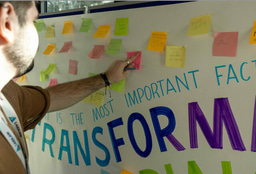
![[CLOSED] Apply to Become an Advisory Board Member](https://images.zapnito.com/cdn-cgi/image/metadata=copyright,format=auto,quality=95,width=256,height=256,fit=scale-down/https://images.zapnito.com/users/290982/posters/b494a8a5-ced0-489b-9b26-6c4da797bedf_medium.jpeg)


Please sign in
If you are a registered user on Laidlaw Scholars Network, please sign in